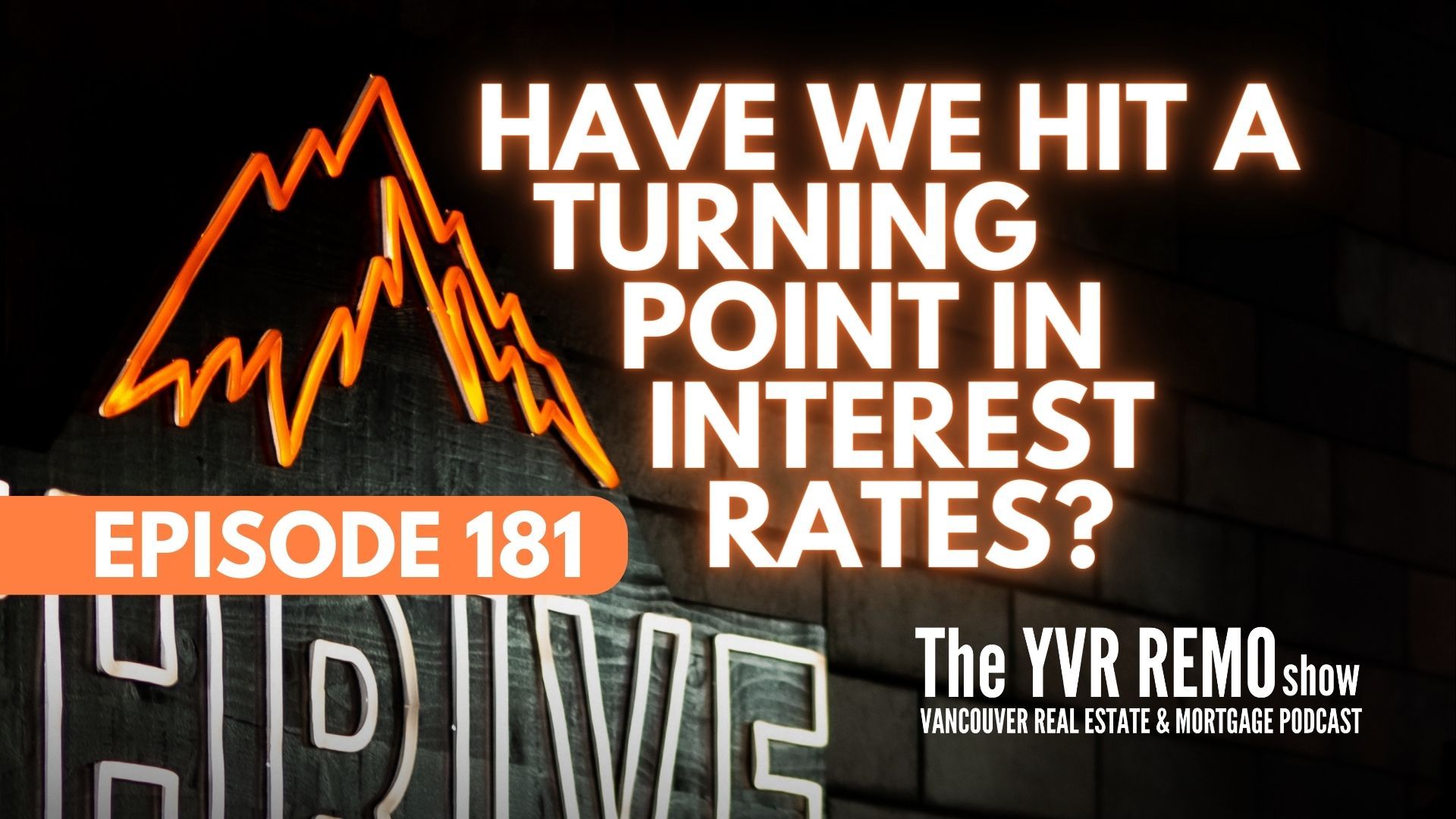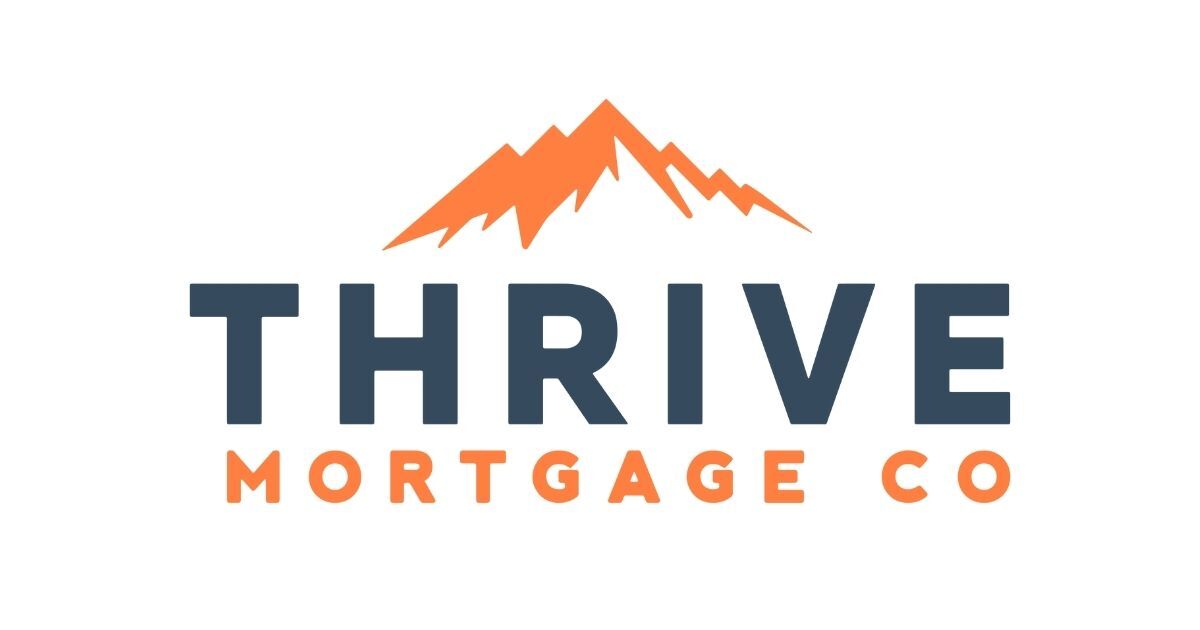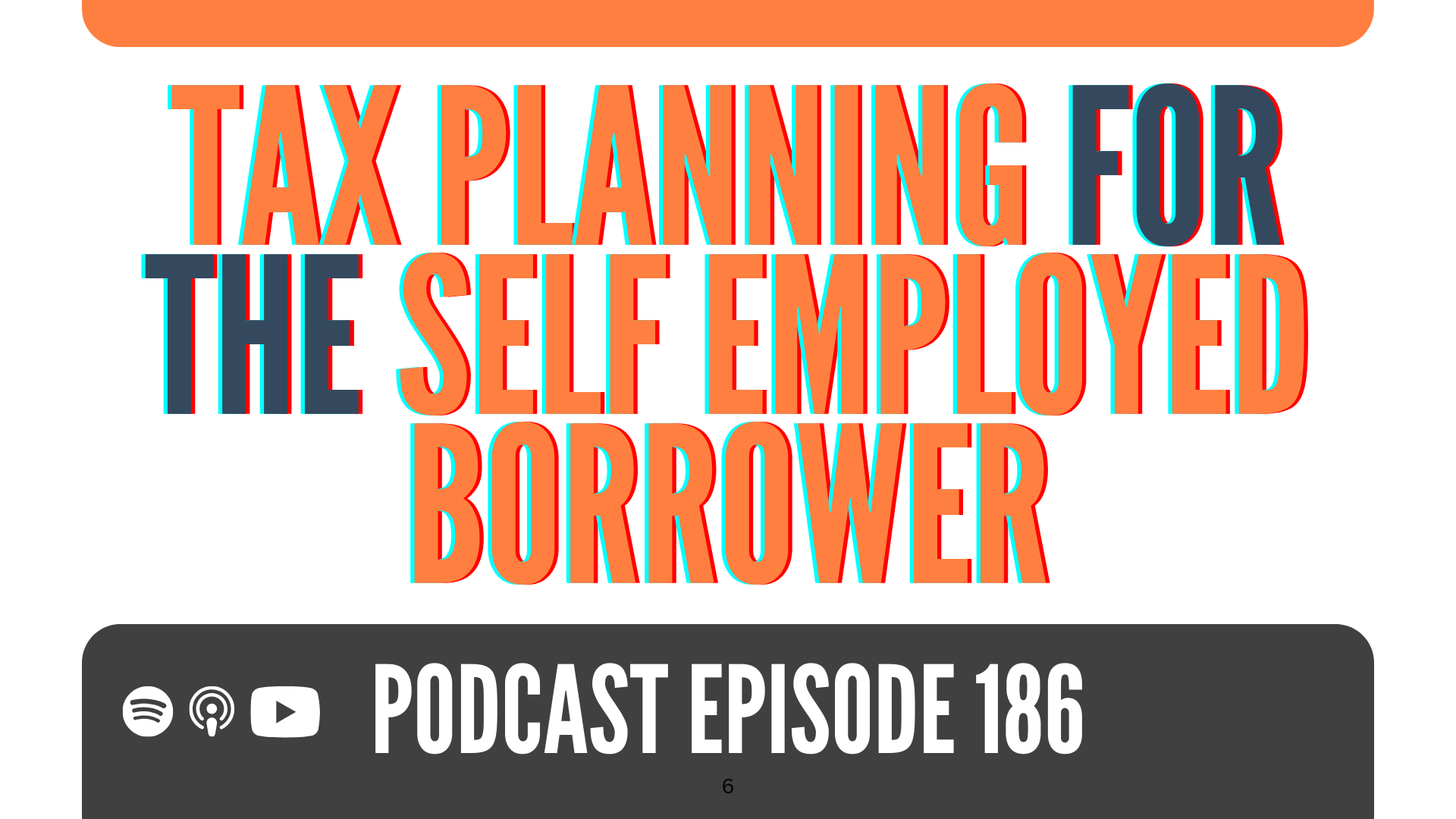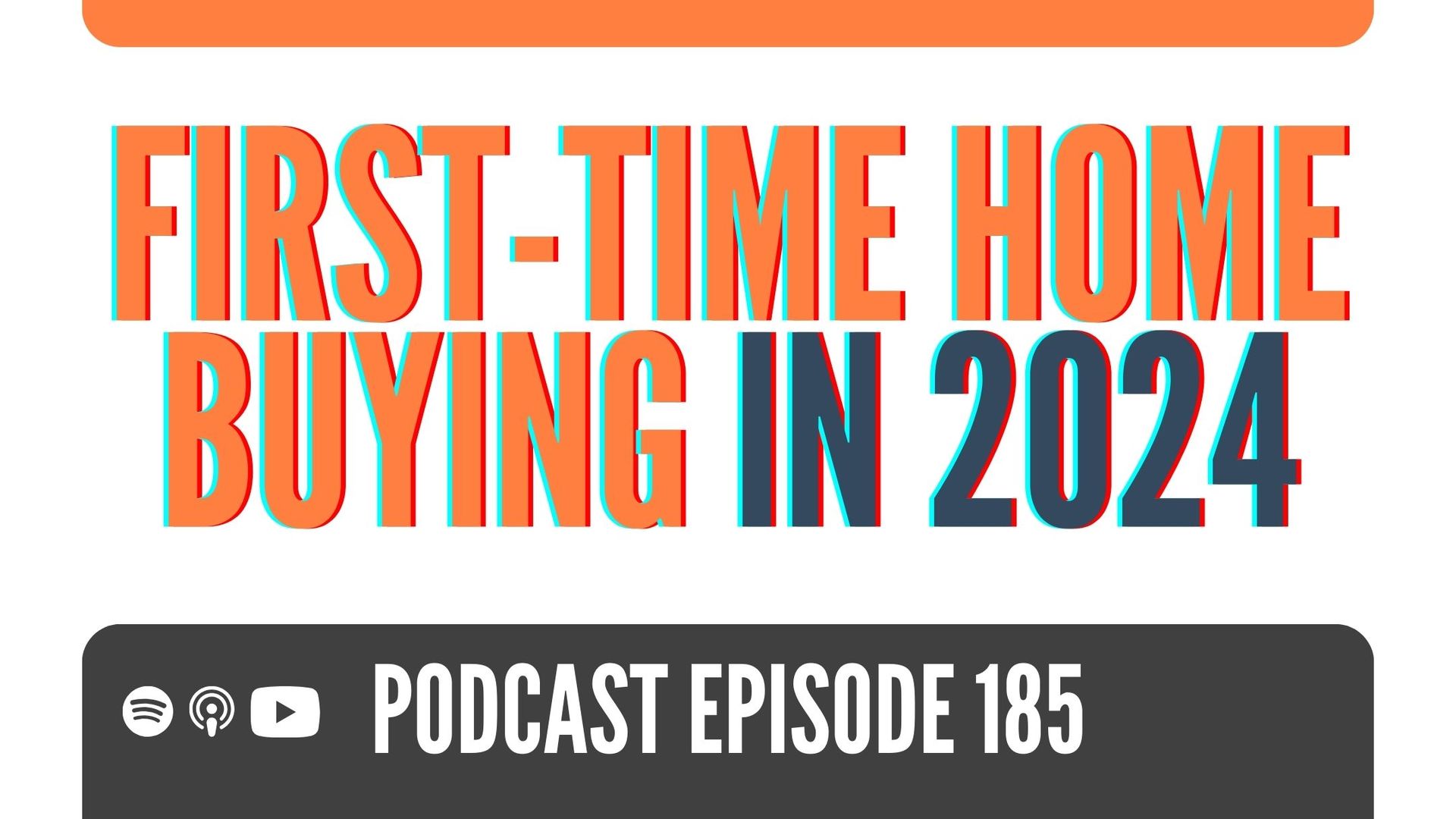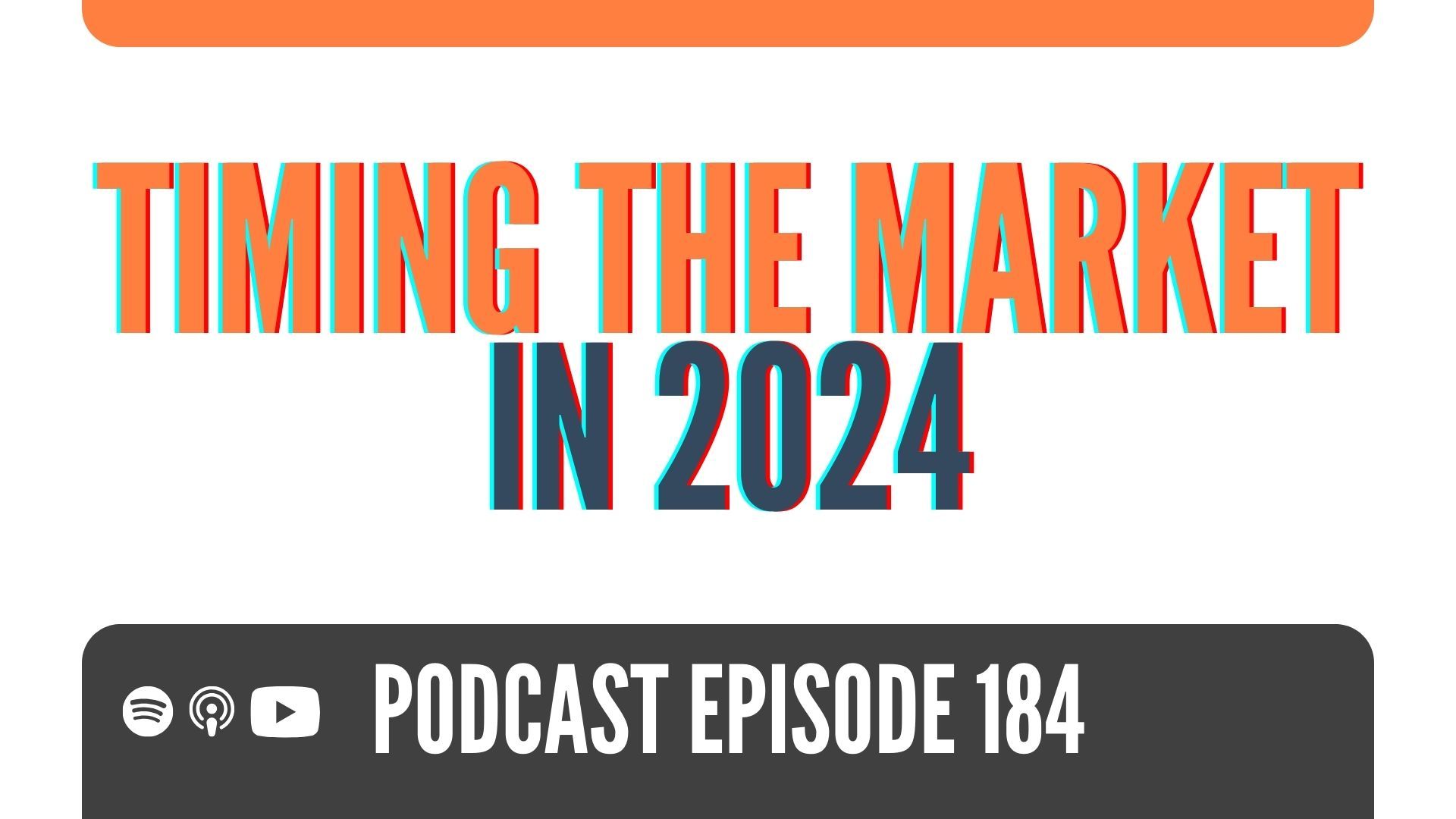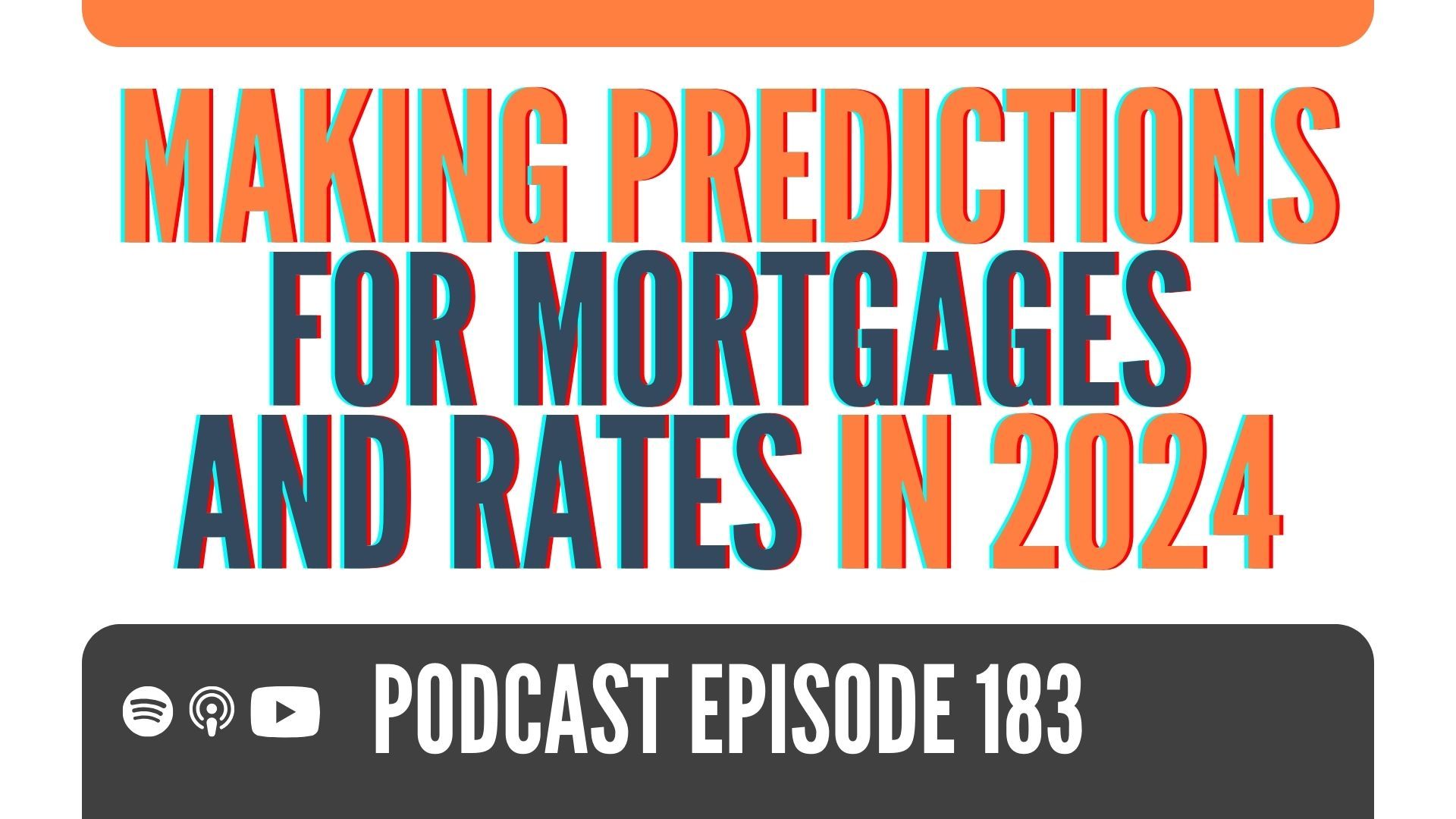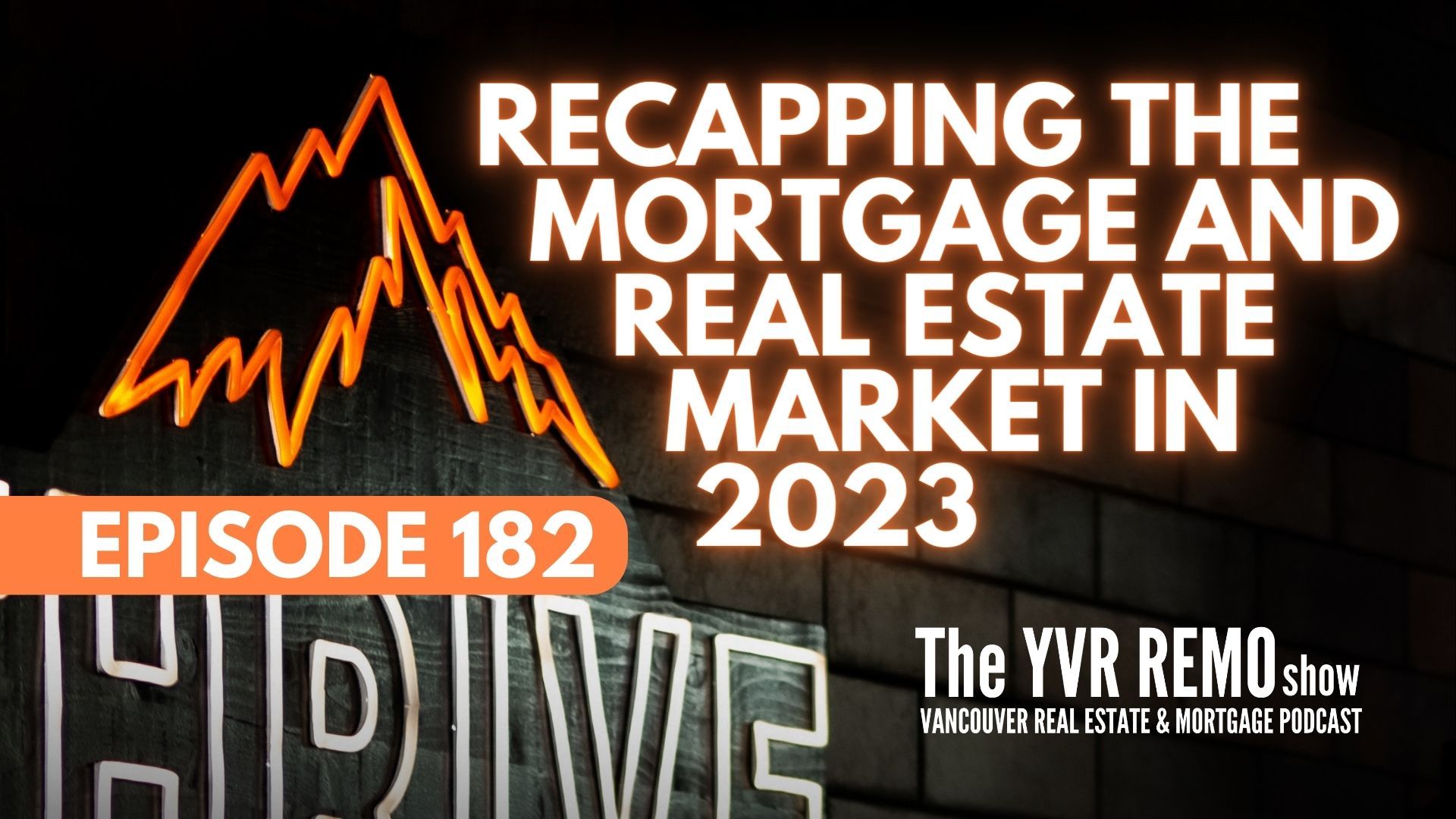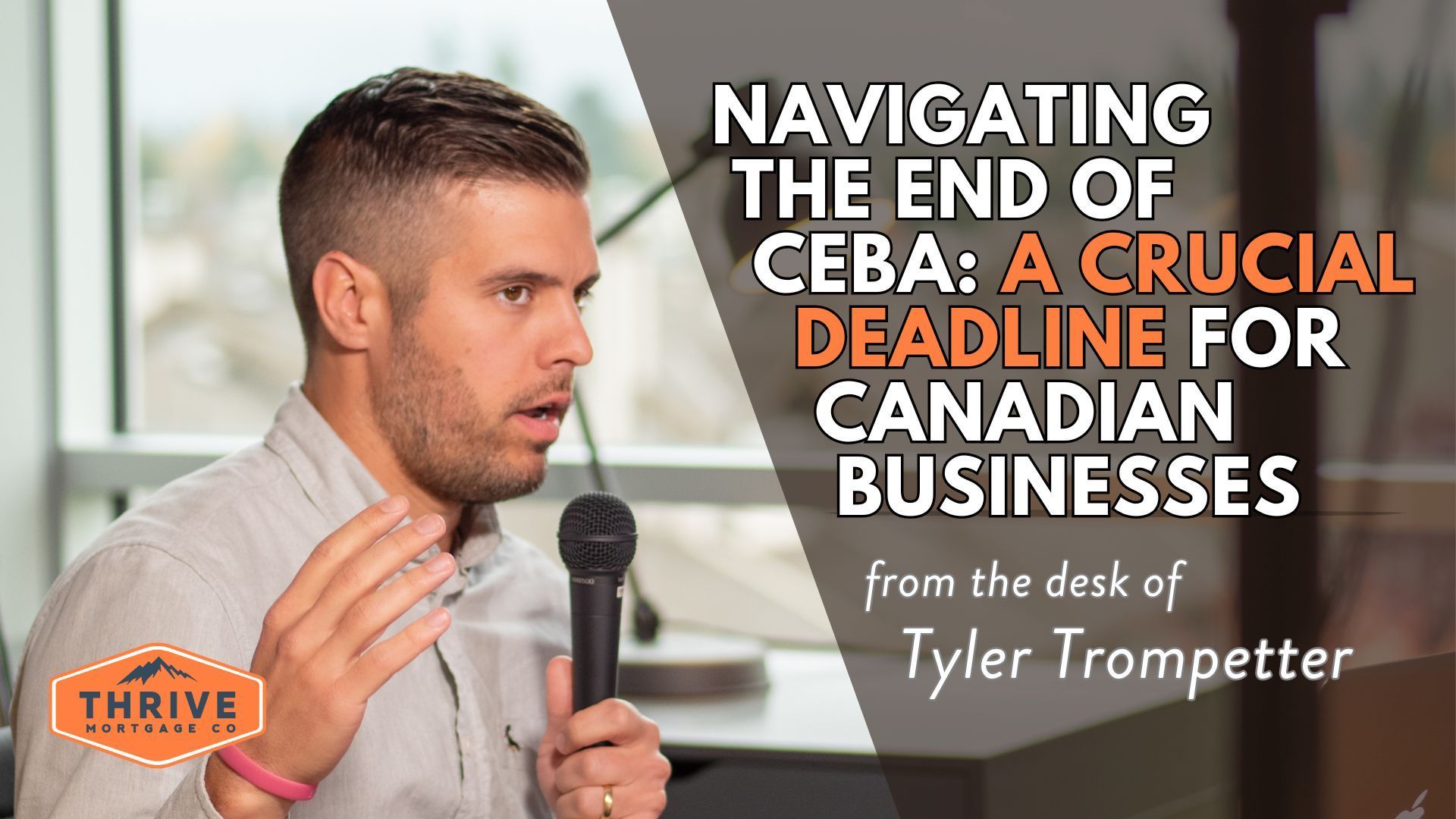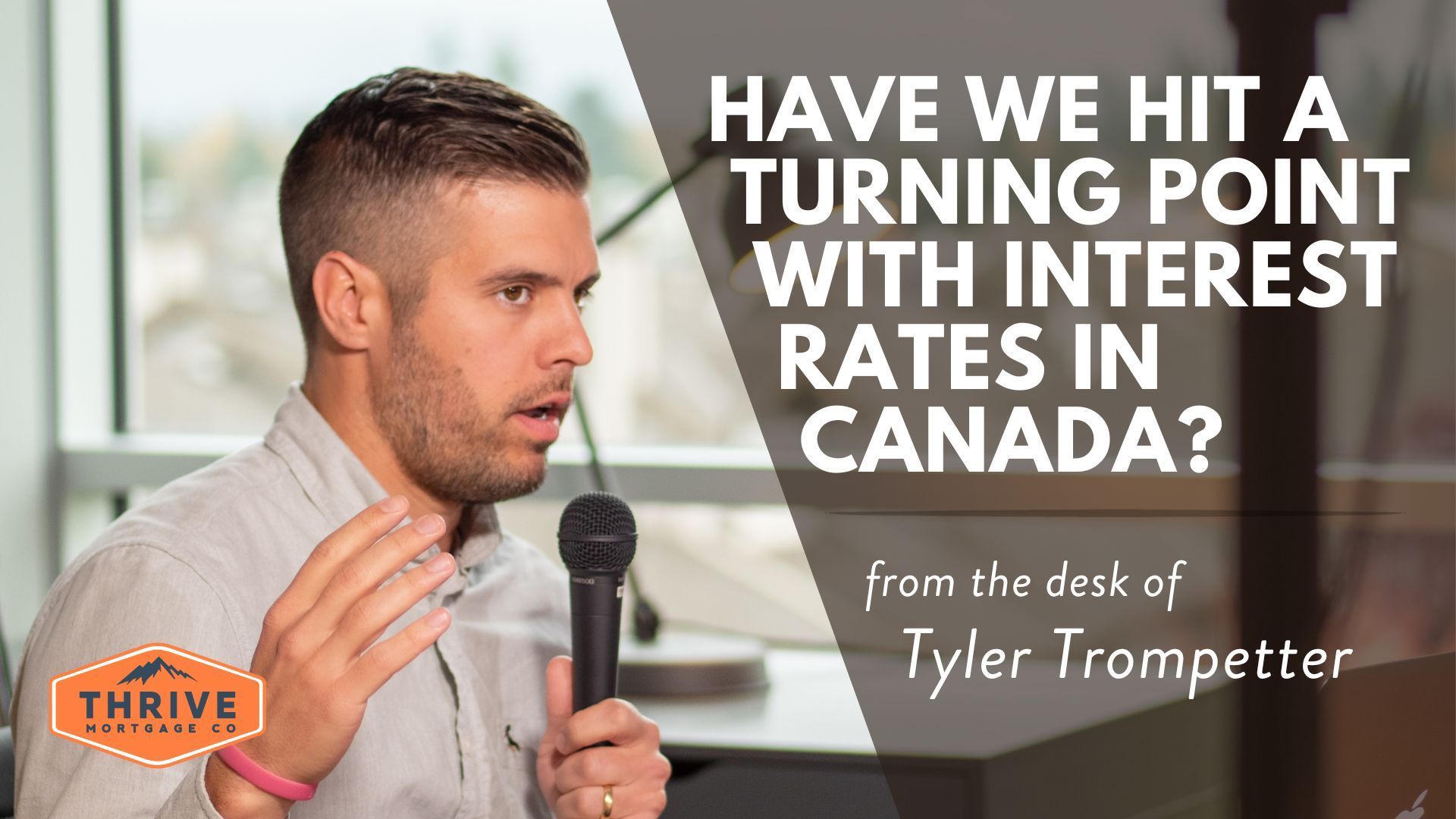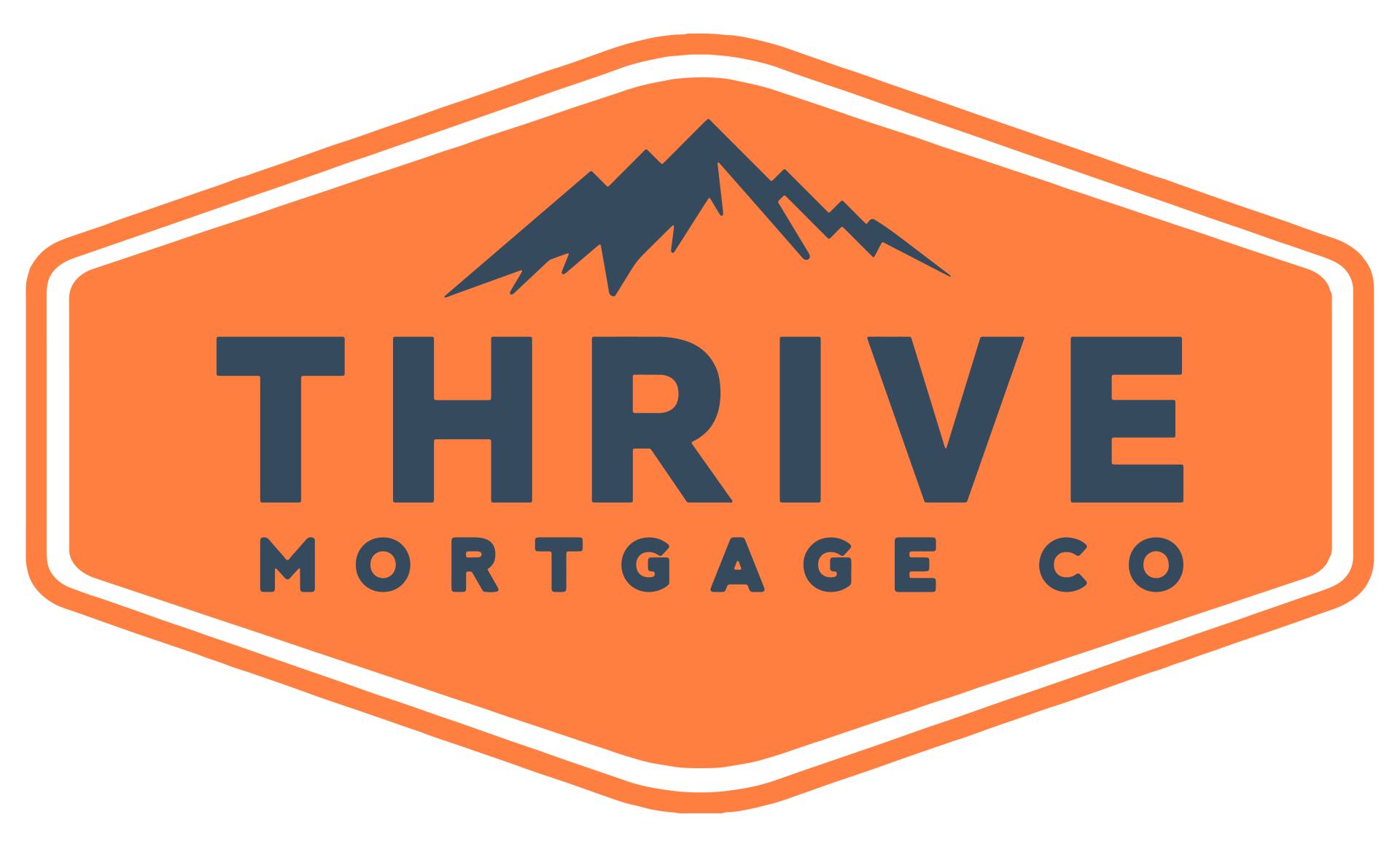Investing In Real Estate Under The Age of 30 | YVR Real Estate & Mortgage Show | Podcast Episode 70
Key Strategies For Investors Under The Age of 30
This was a fantastic conversation with someone that we've really connected with, Jared Hope.
You're going to love this episode.
The amount of experience this guy has from owning hundreds of properties, to a real estate management company, to almost losing everything and going into bankruptcy to reestablishing himself and basically figuring things out. He's got a lot of information and a lot of education.
This will be actually part of a series with Jared, this is the first part we're going to be talking about today, tailoring our conversation around people under 30 years old.
How do I even get into real estate investing if I can't own a home?
Before you turn off, even if you’re over 30, this episode really fits anybody. You can listen to us and get a lot of helpful information, especially if you're really trying to understand his story and some of the suggestions that Jared makes.
Jared Hope
Aside from all the stresses that come with running a portfolio of our size and a property management division, the pandemic has actually been pretty good. We started a renovation back in November, we bought a house on Lake Okanagan. We live in Kelowna so we found a house on the lake here we were looking for last year. This guy had it listed for $4.2 million and kept on dropping his price. At the start of the pandemic, we picked it up for $3 million. We've been renovating and so for the last six months, we've been doing a rental and we just moved in two weeks ago.
Alex McFadyen
It feels nice to live in a new home. How are you liking it so far?
Jared Hope
If someone would have told me back in 2003 this would be the life that I would have, when I was 25 years old buying our first house, I never would have believed that. I heard stories about how real estate is the true wealth and that most millionaires have real estate. When I was 25 years old, we were just doing it hoping that it worked.
Alex McFadyen
There had a lot actually to do with a mindset and an approach that has probably shifted over time. Whether they're in the real estate industry or whether they're borrowers this is just like running any business in life. Case in point would be Tilt Management Group, which I hope you can touch on in a quick minute here. You said you spent two to three hours a week working on that. That's a shift for a lot of people who grind for 100 hours in their jobs. You set yourself up through systems, checklists, procedures, and things of that nature to allow the business to run itself, which is the true goal.
Jared Hope
People who are under the age of 30 buying their first house, they should actually be thinking in that mentality of you're not going to live in it forever.
The odds of you living in that house forever are so rare, it's just likely not going to happen.
How do I buy the next property that's going to make me wealthy in 10-15 years? Play the game that way. Your next two or three purchases should be with the mentality of I'm going to try to run this as a business to make me wealthy.
Back in 2003, I had zero interest in owning real estate. I was of the mindset of the poor dad, if you reference Rich Dad, Poor Dad. My wife was of the mindset of a rich dad. Her parents were entrepreneurs, they were grain farmers and had this gas station. Krista was taught to work for yourself and be your own boss, be a business owner. I was taught to go to school and get your grades and go work for the man. What I started to realize is that no companies have pensions anymore.
We went to this real estate course. We couldn't even afford the $200 a month membership fee. Six months later, we bought our first house. That year, we bought three. The next year, we bought eight. The next year, we bought 64. The next year, we bought 32. We just kept on buying. The mistakes that we made were so unbelievable.
What I realized now is that buying in a hot market, everyone looks like a genius. That's part of the problem that we're seeing right now in this economy. A rookie investor could be 50 years old but there's all these new investors getting on having some early success. They're thinking that they're a superstar because they've made $100,000 in the last two years. In a hot market, everyone looks like a genius, but in a down market everyone looks like a moron.
In 2008, we had that financial recession and all of a sudden, my rents dropped 20-25%. I started to realize I was playing the game wrong. I was following advice from people that didn't know how to play the game. I was listening to people up on stage who I thought were smart. When you actually look behind the scenes, they only had one or two properties or they were getting paid to be on stage. I'm not blaming anybody but this is just the way the situation was. We went off and built all this real estate that turned out to blow up in our faces back in 2008. Come 2010, we had to restructure everything to the point we're at to make my portfolio recession proof. In 2016, we hit another recession in Alberta and we smoked through it. I made more money in 2016-2018 than I ever have before in my life in the middle of a recession in Alberta. I didn't restructure our portfolio to make us recession proof, which was awesome. Then the pandemic hit and I'm like, I'm going to go broke. I have 100 plus properties, I'm going to get one of these tenants that won't pay rent, I'm screwed. That was all the media saying you don't have to pay rent, no rent increases, and so on. We got through the pandemic relatively smoothly. What I've realized is that the way we restructured our portfolio in 2010, we changed the way the game was being played. It's made our portfolio pandemic proof. What people need to realize, which I didn't realize back then is you don't need 100 properties. What if you could do it in 10? What if you could buy one a year for the next eight years and rinse and repeat for the next eight years. 16 years later, you have 26 properties that's doing $45,000 a month of cash flow and your quality of life is through the roof. Your stress levels are way down here.
These big groups that are teaching all this stuff on YouTube, and these non-educated investors, are giving the wrong advice. This is why we created Tilt. We created Tilt Property Group in 2010 but we officially rebranded as Tilt Property Group in 2017. It's a one stop shop for real estate investors. I play the game every single day and that's the biggest thing about our program. I'm trying to buy a house right now. So far this year, I bought 12 houses. Go talk to any other investor or coach like me, they're not as active. Odds are they're not buying anything.
Alex McFadyen
Just like you, my dad was blue collar and worked in a mill his entire life and mom stayed at home to take care of us. The mindset wasn't necessarily, let's acquire properties. It was like let's pay off our mortgage. I think the vast majority of people would agree that when they see someone else who made some money off some appreciation, it strikes their attention.
Jared Hope
I don't actually have a problem with buying a house and paying it off. I have no issue with that. I'm not trying to convince anybody to be a real estate investor. If you have a little bit of an interest in it, at 25 years old all you know is your last 25 years of life. You actually don't know what the journey is going to be. So why not?
If you're buying your first property, why not entertain the idea of what if this is not an asset. It's a liability in the first 10-15 years because you're just paying off interest and you're fixing it. It's just going to cost you money, which is fine. What if 10 years from now, you're 35 years old, now you want to get into real estate. Now that first house, you played the game for 10 years all wrong. I think that the way the game should be played is to go front end load those mutual's and rsps. Banks like those for lending because they look at that as security, they look at that as protection, they're going to qualify you because you have high rsps. Go buy a house and start filling the funnel over here and have investments that get high cash flow that you can then cash out and then go acquire more real estate.
Dean Lawton
What hit home for me is just that business mindset. Even with your primary residence, even if that is your only home, looking at that as a business. I think that's where a lot of people do go wrong, because they don't look at that as an asset that can continue to grow and leverage from, even if that is the home forever, which is very unlikely that would be your forever home. If that is your forever home, what you can do with that appreciation and that equity, that shift of mindset of getting in and getting that business minded approach is where a lot of our clients don't think that way. A lot of them are in great jobs and are making great money with an employer. They have that employee mindset, which is not a bad thing. When you take that into the real estate side, that's where they get a closed mindset.
Jared Hope
This is exactly why we're launching our under 30 program. I was talking to a girl, she's 21 years old. Her name is Morgan. Krista’s best friend calls me up and she asks me to talk to her daughter because she wants to get into real estate investing. She doesn't know if she wants to be a realtor, property manager, or own. I'm sitting there chatting with Morgan and on the zoom call I'm explaining all the benefits of real estate and how I play the game. I closed the zoom call with Morgan and I turned to my wife and said I'm going to start an under 30 program. These kids do not understand how real estate can really leverage things out. Kids under the age of 30, they don't really understand how to run a business, even people under the age of 50 don't understand how to run a business. I want to teach them. I'm going to teach them the power of leverage and teach them how not to be leveraged out. I'm going to teach them because that's another mistake people make when they keep on refinancing their primary residence. It's okay to play the game at the start like that but at some point in time, you have to get away from it. I'm going to teach those under 30, how to attract money, how to find the right property that's going to work, how to do joint venture partners and what types of properties work. The truth is that they're not being taught that. Their parents are people who are just paying off their debt for the next 25-30 years. They believe that real estate is their asset. One piece of real estate, that's a totally cool mindset, however, there might be a different way to play it. I want to educate these people.
Dean Lawton
That's cool to hear. That generation is so fixated on being an entrepreneur. With the older generation, that wasn't the case. We all had blue collar parents who just beat the hammer every day and went to work. Now, it's so cool to be an entrepreneur, but they're going into it close minded and not having that education that you're providing, which is second to none.
Alex McFadyen
In your first couple years, you acquired a lot of properties. The first thing we need to explain to people is the climate of lending was very different. Taking that approach today is very different, it's very different from what it was before. The second thing I heard you say is a lot of people don't need to own 50 properties. I would agree with that. Getting to five could change your life.
Jared Hope
If you buy five properties over the next five years, and those five properties cashflow $500 a month, that's $2,500 a month. In 25 years, let's just say rents are the same, you're now making $15,000 a month of revenue, they will change your life. If you start the game at 30 years old or at 25 years old, when you're 50-55 years old, doing $15,000 a month and you have $3 million worth of assets, it will change your life. In 2003, the game was different, I could walk into a bank and the banks were just handing out mortgages like crazy. I didn't go acquire 100 properties in my own name, I got 13 in my own name. I ran out of money and then I had to build with investors. From 13 to 120, I have investors which I've now bought out. I've bought the houses in my own name, I've raised something like $28 million of capital, I've done $140 million worth of renovations, I've played every aspect of this game. I look at getting to 13 for me back in 2003 is probably the equivalent of getting two to four today.
The big difference between me and anyone else is I'm still playing the game today. All these other coaches and investors, they're not playing the game today. The rules are different. Tenant profiles are different, properties are different, areas are different, and understanding the markets are different. What I was doing 15 years ago does not work today.
Alex McFadyen
Let's go back to the under 30 crowd because we want to focus our energies today on those people who are listening and buying their first or second investment, to be clear, you don't have to be under 30. A lot of people are buying their first home, property, or investment in that younger age category. One of the biggest barriers is them not having the experience. I just got to get into my first home. Only recently have I seen a lot more younger people open their minds to this idea because of entrepreneurship and business ownership being bigger. Most of the people we're talking to that are interested in investments are a little bit later in life. So one of the things that we want to do is open ideas in the minds of younger individuals and say you can do this, you can get into the market. Why do you think it's a really good idea for younger folks to be starting and having that mindset right now? What are some of the things and recommendations that you're making immediately to those folks?
Jared Hope
Great question. If I was 25 years old again, what would I do? I would house hack. I would buy a house for 5% because you have the ability to do it. Buy a half a million dollar house and come up with $25,000. I would borrow the money from my dad, I would go get a job and save, sell my car, whatever it took. I would live in that house and have a couple of roommates because I'm 25 and have no kids. I can pack light. It's pretty easy to pick up and move and then move a year later, but keep the house. You can do that two or three times. You can actually acquire your first few houses with very little down. When I go to buy a house, I have to put 20% down whereas a first time investor can actually put $25,000 down. They can build a bigger asset base. That's how I would play the game. If I was starting out and I didn't have any money or equity and I was fearful, I'd rather put that money towards something that I own. That's what we did.
We bought our first house in Edmonton, we couldn't afford anything, we were broke. It's not like I started this game with a million dollars, we legit had $15,000 to our name. When we bought our first house for around $147,000 I had to borrow half of the down payment, we put 10% down. That's all we were allowed back then. I had to borrow from my dad. Krista owned a condo with her mom that they sold and Krista’s half was $10,000 of the profit and her mom made the same amount. That's how we bought our first house. It was a house with a basement suite. My mortgage payment was $847 a month. We rented out the basement for $550 and we took on a roommate for $300, we were living for free. We did that for two years where the house appreciated to $300,000. I refinanced it then bought three more properties and moved out of that one. That's how the game started.
Everyone always says the market is too hot, so fear stops them from getting in or greed makes them jump in. I look at the market right now and I actually think the market is probably one of the best markets to get started.
My first mortgage was around 7%. Now you start looking at what you're coming out of the pandemic, you look at GDP growth, you look at activity in the market, you look at the travel industry, everyone's going to be dumping money and dumping opportunities back into the economy to make it pop. Then you factor in interest rates and there's just a massive opportunity right now all over the country. Some are a little bit hotter than others. But there's still opportunity.
Alex McFadyen
Opportunities are everywhere, you just have to be looking for it. Be present, be available, and be right to do so.
We had a gentleman actually on our show and his parents set up a line of credit on their home. The real estate agent that he was working with helped them purchase a house that had two basement suites and a coach home. He literally rented out both suites and the coach home and he rented out a room in his house. He wasn't only living there for free but he was being paid to live in that home. He lived in that home for a number of years, refinanced that and purchased another property. He eventually sold it and built a house, which is one that he's made a bunch of money on.
We got a couple episodes about housing hacks that we talked about. One of the things that we talked about was what you said, which is getting to do the 5%. You don't have to be a first time buyer to do 5% you just have to be moving into the home. You just have to qualify for it. Rent out that second room, put somebody in there and get them to help you own that.
Kosi Stobbs was one of our guests. He came on and he talked about how he did that. We've got a lot of people who said the exact same thing.
Jared Hope
I have a client. She just bought her third property. She's been with us for a year and a half and she came to us. She was living with her mom, just out of town in Edmonton. She bought this house with a legal basement suite. She bought it and lived downstairs, rented out upstairs, and did that for about eight months. She bought another one and moved to that one. She kept this one and moved to that one. Now she's just bought her third with 20% down. She bought a cabin on the lake, which is where she wants to go back to. These two properties are cash flowing $1,500 a month and it's in Edmonton. Cash flow is a lot higher in Alberta than BC. These two properties are now helping her offset the debt and letting her make some good income. Now she's bought this property where she's able to acquire a million dollars of assets for $50,000. Her game is that, she's just gonna hang on to these for eight to 10 years. She will rinse and repeat that model over and over again. She legit lived on a couch.
If you can make a million dollars, would you not live in boxes? For six months? In eight months? For 10 months?
She will make a million dollars from living out of boxes for one year. Someone who is aged 50 could play this game too. It's just a little bit harder as you get older. It's just a great concept. It's a great way to play the game, as long as you can keep on qualifying.
Alex McFadyen
When you said that right there, I think we just want to focus this around somebody who's young and has that ability. If you're at a different stage of your life, or a different point, there's still an opportunity, just different opportunities
Dean Lawton
We have a ton of clients that come to us with expectations to buy that $500,000 home or whatever the price is, and they don't qualify. Their job doesn't allow them to qualify, even with 5% down. It's just not going to happen for them. What's your advice to somebody that's so keen on getting into this industry, but they just don't have that income bandwidth to get them into the market to actually buy a product?
Jared Hope
Hire someone who can show you how. I bought 35 properties with no money down.
There's something called agreement for sale. I have transacted 30 to 40 properties agreeing for sale where I might give the person $10K. They hold the mortgage for me for the next 10 or 12 years. Legally I own it and technically, I own it all. I have to make all the payments. There's ways to buy real estate with no money, or little to no money down.
Joint ventures raise capital. Whether it's on your first property or your 10th property, at some point in time every investor runs out of money.
Raise capital, go to your parents and say I got a business proposition for you. Let's go buy this house. You put the downpayment and you cosign for me, we're going to be partners. In five years, we're going to sell that house, I'm going to give you all your money back. Plus, I'm going to give you 50% of the profit and appreciation. I'm going to take 50%.
I was in the gym the other day with my trainer. I'm working out with Luke, a phenomenal kid, 30 years old. I'm working with Luke and ask, what's going on? Are you ever gonna grow up? He responds, “what are you talking about?” What are you going to get out of the basement? He's renting a basement right now for $1,000 bucks and he said he can't afford it. I said, I'll make you a deal. Here's the deal. It's called a hassle free landlord. Let's go buy a townhouse for half a million dollars, you go buy it for 5%, he makes about $80,000 a year for sure. So I said, you go qualify for the mortgage and I will put $25,000 into your bank account right now. Three months later, because banks want to see the money in your account, we'll put the money in your account right now and we'll do a letter of intent. This is so you can't take that money out, we'll put it in your account, you go get the mortgage, and now I am a partner in that house. He's like, what's the benefit to me? You're getting a house for free in five years. Over the next five years, you're going to cash me out, I'm going to get my original investment back, I'm going to get half the profit and half the appreciation, but so are you. At that point in time, you can refinance the house to pay me out or you can sell the house to pay me out and go buy another one. I would do this deal all day long with first time investors who have a contract, screen them and get credit checks that protects my interest. 10 years from now or five years from now when we cash out, I'm going to make hundreds of thousands of dollars off of that money. It's very little risk because they're going to pay the mortgage, they're going to clean it, they're going to cut the yard, there's no tenants to worry about. There's no rent to manage. I just got to tie up $25,000.
What would I say to these people, if you really want to do it? Find a way and if you can't find a way, hire someone who can teach you how to do it. I talked to somebody the other day, from Ontario. Our under 30 program is $9,000. It's a nine month program. She's like, it's too much money. I can't afford it. She's sitting there trying to save this money at $15,000 versus spending nine grand to go learn how to buy the house. I could have shown her in one conversation how to buy a house. That $9,000 I would have quadrupled the value of that, but the mindset of those under 30, I got to hoard my money because they're still thinking about saving to get rich. It's impossible. Can someone teach you how to buy a house with no money down and how to raise $100,000? I went up to my dad when I first started and my dad told me no. I went up to my Dad and said I got this idea. I ran out of money. I went to my dad and I brought up my whiteboard. I'm drawing all these houses, and I'm crossing things out and running numbers down. It was the best sales presentation ever. My dad comes back to me, he's like, no because I've seen 20% interest, it’s too risky. If I would have stopped at that point in time, I would not be living in a $6 million house on the lake, I would not have my boat, I would not be living in the Okanagan, I'd not be working two hours a week in my company. I just wouldn't have done it, I would have stopped, I would have gone back working for the man. I look back at that experience, which is kind of the same thing that you're saying.
You either want it bad enough or you don't. It's a select few that sit there and say, I want it and I'm willing to do the work. I'm willing to be misunderstood. There's people that are going to be sitting there saying don't do it. Those are the people that you just tune out. Don't listen to them and start hanging out with the people that do want you to have success. That's your mortgage brokers who understand the game who actually have your best interest. That's your real interest, to understand the game. Stay away from the big groups, those big groups are not like minded people. You go to a room with 500 people. Good luck finding someone who you can resonate with. They're all there for the same thing, in my opinion, and I've been in those big rooms.
Back to your question and this has many answers to your question for sure. What do I say to those people who just can't do it or don't want to do this or are having a hard time finding a way? Because 10 years later, you'll be grateful you did.
Alex McFadyen
I tell people the story all the time, I still own my first condo. At the time, it probably would have rented out for $900 bucks. I could rent it out today for $1,900. This is nine years or 10 years later for that same property. If I keep this property for another 10 years, I'm just getting more and more cash flow. Having that mindset of getting in and partnering, using the 5% down, these types of things are key. Are there any other tips or feedback that you have here for someone who wants to know how to get in? What should I do? What do I look for? Any thoughts on the actual property types?
Jared Hope
Buying real estate's easy but getting your head around buying is hard. If someone wants to get into real estate, what they'll do is they'll just start reading every real estate book out there. They'll start following YouTube and get the free stuff and they'll start listening to every podcast, there's a point where you actually take on too much information. Everyone you talk to is guiding you in a different direction. You have to be careful with the advice you get.
The feedback I would give is I would be spending my time on personal growth and personal development. Rich Dad Poor Dad, The Millionaire Next Door, The Big Leap, these are all books that can help you. The Big Leap is one of the best books I've read in my life. I've actually read that book a number of times. It's about your upper limit of thinking. We all have upper limit thinking. It's the upper limit of thinking that prevents us from actually achieving a result because we actually started listening to the naysayers more than we actually listened to the yay sayers. As far as the type of property, there's so many different types of property. The mistake people make is they think they have to buy in their own backyard. Obviously you want to buy in your backyard as far as an investment but you don't have to buy in Vancouver for an investment. You look at oil, you look at GDP, you look at the rental tenant act. The tenant act in Alberta is the best in the country because I can always rent once a year unlimited. Year over year your taxes go up, your interest rates go up, your property expenses go up, and labor goes up. Inflation is going to push costs up but you're still not raising your rent. Three years later, you haven't raised rent 2%. You just missed out on all those rent increases. This is actually going to hurt your lending power as you grow. You want to make sure that you're playing the game properly. As far as real estate, I'm a big believer of two for the price of one, which means two suites for one house. Suited houses, duplexes, or triplexes for renting out rooms. If you're young, rent out rooms because you're going to make a pile of money in 10 years. Have iron tight ironclad agreements with these people that if you don't like him, you can kick them out. Take security deposits that hold the course and run it like a business because things go sideways. I wouldn’t just wouldn't rent out to anybody. Buying real estate's easy, I keep on saying that, it's just do you really want to do it? If you do, go find someone who knows what they're doing, and they'll guide you through.
Alex McFadyen
We talked to people all the time. From a lending perspective, you buy one house, but you have two sources of rent or three sources of rent. That's key from our perspective, because in your mind, maybe you've got two doors but the lender thinks you only have one house which is fantastic. That helps you out long term. Shift your mind from scarcity to where's the opportunity? I can get more, but where is it? You just have to figure out where it is and find it.
The second thing is, a guy like you is willing to share all your ideas and strategies with people that come in. Dean and I, as partners, pay for a coach to help us in our business, not because we can't figure it out but because it makes so much more sense to talk to someone who's already been there to help guide us and eliminate a lot of the mistakes that he's already made. He's the one who recommended the big leap to us. We were familiar with that book.
The third piece is just the confidence. The mindset of I can do this, I can get into my first property. Learn how to house hack because it's okay to have a roommate for a couple months, or a year or whatever. Look at those opportunities. Those are three key things.
Can you talk to us a little bit more about this program? Who is it for and how can they reach out to you?
Jared Hope
There's I don't believe in refinancing your property and leveraging it out to the nines and adding all this stress. I think there's a different way to play the game that can keep balance and structure while leveraging out just a little bit and buying different properties that are going to increase your cash flow.
We started the coaching program in 2017. We started with a small group and it was the first evolution or the first run of the coaching program. I had six couples at a table and we used to meet once a month. I looked at those six couples at the table and we met for eight months. I kind of got away from it because we got into one on one coaching after that, which we still do one on one coaching. We're going to go back to the drawing board and take these under 30 investors who don't like their job or they want more opportunity. They want some wealth or they want some pension that they're just not going to get. We're going to take them and teach them how to understand business, how to understand cycles, how to raise capital, and how to do presentations. Once a month, there's a group call with everybody from all over the country. It's a three hour group call. We've had all kinds of coaches that have real world experience. We've spent hundreds of thousands of dollars on coaching. We're gonna take everything we've learned over the last 10 plus years of our personal development and give it to these under 30 kids. Once a month is going to be a three hour group call with guest speakers. We're going to have our topics, we're going to have our agenda, and we're going to walk them through the process. They're going to have small groups, we call them pods. So you're going to have pods of four where they're going to have assignments and they're going to have how to do presentations, how to give feedback, and how to ask. We're going to have a presentation, for example, they're going to have to do and then they're going to get real time feedback. We're going to have the main group and then we're going to have pods. These pods are going to teach them how to get feedback to make them really sharp and crisp when they go to attract money, when they go to deal with a mortgage broker, when they go to deal with their dad, or deal with their tenants.
To find out more about Jared and Krista’s coaching program, or to get into touch with them, follow the links below!
Their website!
www.jkcoaching.ca
Contact them directly!
www.jkcoaching.ca/contact
Find them on Instagram & Facebook!
instagram.com/jaredandkrista
facebook.com/jaredandkrista
Have more questions? Get ahold of us!
We're on Instagram!
instagram.com/thrivemortgageco
Check us out on Facebook!
How to Reach US! 📲
Call 604.398.5575 or Email us!
More Questions or READY to get started!?
Just Ask US > Click Here to set up a call or EMAIL us
